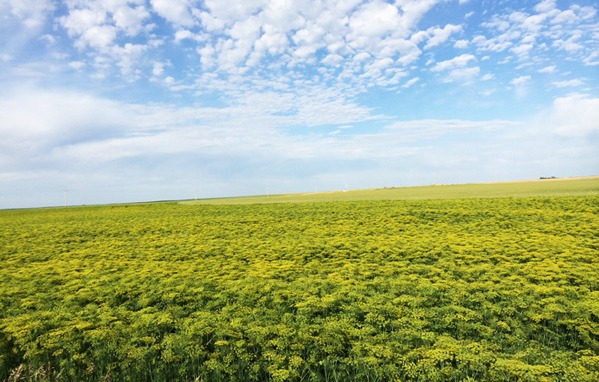GACPs provide a framework to help growers, harvesters, and processors ensure quality
The American Herbal Products Association (AHPA) and the Canadian Herb, Spice and Specialty Agriculture Association (HSSA) encourage the use of recognized Good Agricultural and Collection Practices in the North American herbal products market. With herbal product manufacturers increasingly sourcing plant material on a global basis, AHPA and HSSA are recommending the consistent use of Good Agricultural and Collection Practices (GACP) as the herbal industry standard for North America. GACP practices provide a framework for growers, harvesters, and processors so they can ensure that herbal raw materials used in consumer products are accurately identified, not adulterated with contaminants that may present a health risk, fully conform to all quality characteristics and respect ethical and environmental principles.
The US and Canadian GACP systems share these important characteristics that enhance quality practices throughout the botanical supply chain. Both systems apply to cultivated as well as wild collected botanical material and are built on the following GACP concepts:
- Plant identity – the foundation for ensuring safety and consistency of any plant based product in the global marketplace.
- Reliable botanical suppliers – having knowledge of the products and practices being used that can impact botanical quality.
- Harvest and post-harvest processing – implementing practices that preserve and protect botanical quality as it enters the botanical supply chain.
- Training – ensuring employees have appropriate training for their job functions and that records are kept to document GACP activities.
AHPA and HSSA encourage the use of these GACP systems in the US and Canada as a means of managing risk and establishing consistent and recognizable standards for North America. These tools allow the botanical industry to take a proactive approach in addressing safety, quality, ethics and traceability within their operations.
AHPA originally released its GACP guidance in 2006. Due to heightened herbal industry interest in documentation of quality practices, and the introduction of a new US regulatory framework impacting botanical dietary ingredients used in dietary supplement products, the AHPA GACP guidance was substantially updated and expanded to include recommended good manufacturing practices applicable to botanical materials. This new version, now titled Good Agricultural and Collection Practices and Good Manufacturing Practices for Botanical Materials (GACP/GMP), was issued in March 2017. AHPA has since developed companion assessment tools for each section of the GACP/GMP to facilitate implementation by companies choosing to document their compliance.
The Canadian Herb, Spice and Natural Health Products Coalition (CHSNC) released its Good Agriculture and Collection Practices program in 2004 providing industry with tools from the field and forest to the shelf to ensure quality, traceability, ethical handling and to identify and mitigate risks relating to product safety. To enroll in this program producers must be trained and certified. The Canadian GACP program is subjected to regular reviews under the Canadian Food Inspection Agency’s on farm food safety program based on the HACCP (hazard analysis critical control point) model. Canada’s Plant Identification module was developed in partnership with the World Health Organization and AHPA and has been accepted and used globally. The GACPs were originally built with the support of Health Canada’s Natural Health Products Directorate (NHPD) as a collaborative initiative to ensure due diligence from the field and forest to the shelf with NHPD regulating the finished product and Canada’s GACPs addressing the risk in the rest of the chain. To date over 1400 individuals have completed GACP training through HSSA.
AHPA and HSSA believe that adoption of recognized GACP practices demonstrates the quality of botanical ingredients in consumer products and supports the industry’s continued commitment to transparency for herbal products in both the US and Canada. These industry standards can build trust within the botanical supply chain and enable those companies that comply with GACP practices to differentiate their products in the marketplace.
Thank you to HSSA for submitting this article and photo
